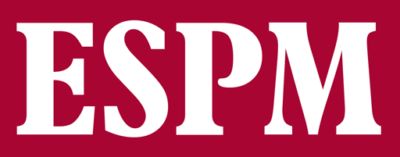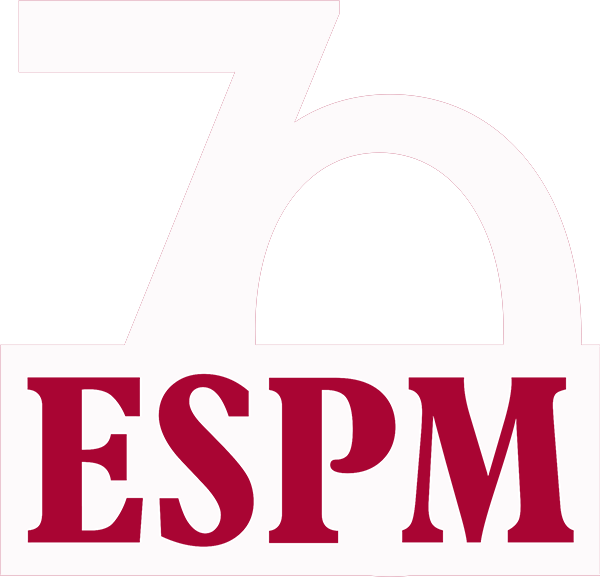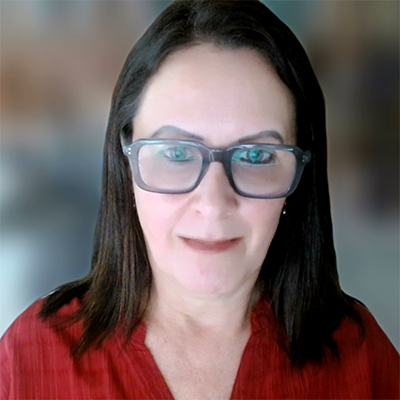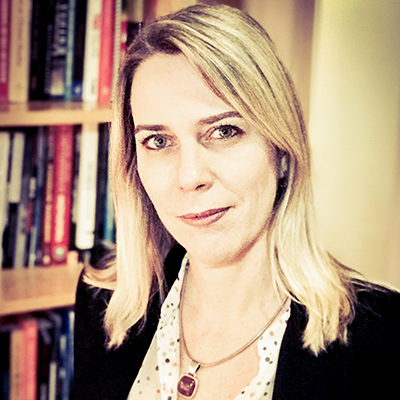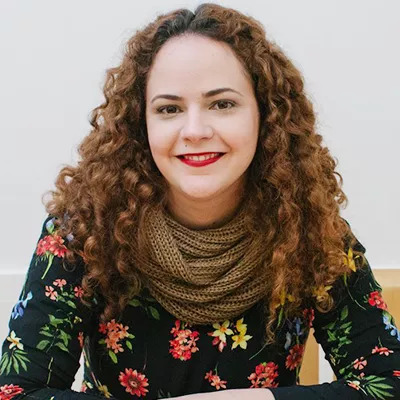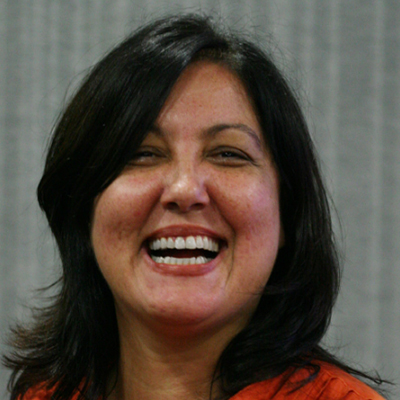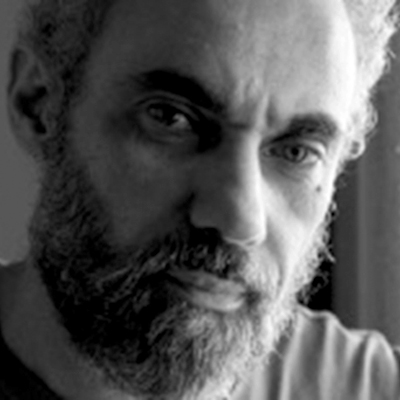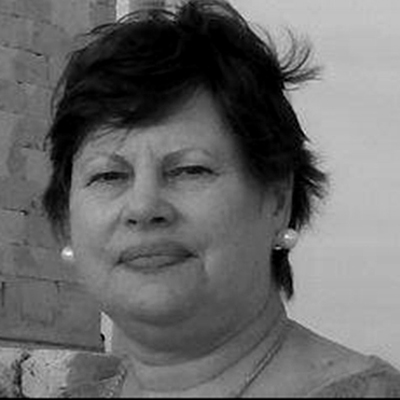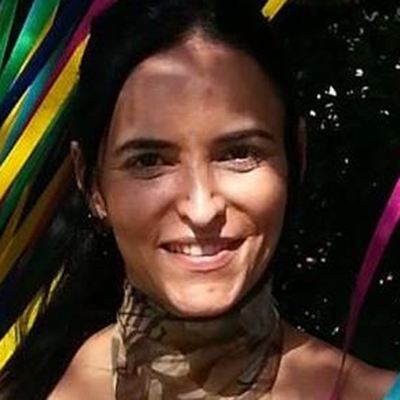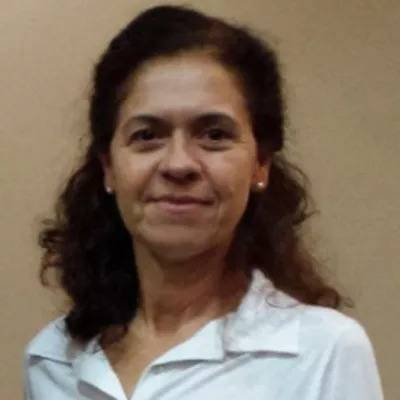Mestrado em Comunicação e Práticas de Consumo
Aulas
Às segundas e quartas-feiras
Data de início
10/02/2025
Modalidade
Presencial
O Mestrado Acadêmico em Comunicação e Práticas de Consumo da ESPM prepara pesquisadores e professores de excelência para atuar em níveis nacional e internacional. Com início em 2006 e avaliação nota 5 pela CAPES, o programa oferece uma formação sólida em comunicação e consumo, incentivando a liderança em atividades de pesquisa e ensino. Contando com um corpo docente e discente de produção intelectual destacada, o curso é ideal para quem busca especialização de alto nível e reconhecimento no campo acadêmico.
Mestrado em Comunicação e Práticas de Consumo
Selecione a opção do curso para continuar
Modalidade: Presencial
Data de início: 10/02/2025
Período: Vespertino
Duração: 4 Semestres
Aulas: Às segundas e quartas-feiras
Horário: Das 14h às 18h
São Paulo - ESPM Tech
O Mestrado Acadêmico em Comunicação e Práticas de Consumo da ESPM prepara pesquisadores e professores de excelência para atuar em níveis nacional e internacional. Com início em 2006 e avaliação nota 5 pela CAPES, o programa oferece uma formação sólida em comunicação e consumo, incentivando a liderança em atividades de pesquisa e ensino. Contando com um corpo docente e discente de produção intelectual destacada, o curso é ideal para quem busca especialização de alto nível e reconhecimento no campo acadêmico.
Modalidade: Presencial
Data de início: 10/02/2025
Período: Vespertino
Duração: 4 Semestres
Aulas: Às segundas e quartas-feiras
Horário: Das 14h às 18h
São Paulo - ESPM Tech
Eventos ESPM
Conheça todos os detalhes do nosso curso, converse com o coordenador e decida o futuro da sua carreira.
Sobre o curso
Comunicação e Práticas de Consumo:
O Programa de Pós-Graduação Stricto Sensu em Comunicação e Práticas de Consumo da ESPM (PPGCOM-ESPM) teve início em 2006 com o curso de Mestrado Acadêmico e o curso de Doutorado foi aprovado em 2012. Tem por objetivo formar professores e pesquisadores de alto nível, com competência de atuação nacional e internacional, capazes de executar e liderar atividades de pesquisa, orientação e ensino na área de comunicação e de consumo. Seu corpo docente e discente tem produção intelectual reconhecida e o programa é avaliado como nota 5 pela CAPES.
Sobre o PPGCOM:
5 Vídeos
Linhas de pesquisa
O curso está organizado em duas linhas de pesquisa:
Comunicação, Consumo e Contextos de Recepção
Comunicação, Consumo e Lógicas de Produção
Comunicação, Consumo e Contextos de Recepção
Estudo dos marcos históricos e dos processos contemporâneos da recepção, bem como das novas práticas e perfis de receptores/usuários. Focalizando os grandes contextos econômicos, tecnológicos e socioculturais em que se configuram relações entre comunicação e consumo, investigamos os contextos e práticas de recepção que constituem e são constituídos por fenômenos da comunicação jornalística, corporativa, publicitária, audiovisual e outras expressões midiáticas.
Professores dessa linha:
- Denise Cogo
http://lattes.cnpq.br/5580285310605978 - Egle Müller Spinelli
http://lattes.cnpq.br/1376252594990732 - Gabriela Machado Ramos de Almeida
http://lattes.cnpq.br/7975111935945848 - Marcia Perencin Tondato
http://lattes.cnpq.br/9242834336115520 - Rose de Melo Rocha
http://lattes.cnpq.br/2514554478091432
Comunicação, Consumo e Lógicas de Produção
Estudo das lógicas e sistemas de produção que se evidenciam nos processos, formatos e objetos comunicacionais. Considerando a comunicação e o consumo como fenômenos socioculturais, investigamos as dinâmicas e estratégias de mercado, as inovações tecnológicas e a produção discursiva na comunicação audiovisual, jornalística, organizacional, pública, publicitária e nas demais linguagens em circulação.
Professores dessa linha:
- Eliza Bachega Casadei
http://lattes.cnpq.br/6547895943001454 - Gisela Grangeiro da Silva Castro
http://lattes.cnpq.br/3110538732969465 - João Luiz Anzanello Carrascoza
http://lattes.cnpq.br/6452672613600277 - Monica Rebecca Ferrari Nunes
http://lattes.cnpq.br/7955592804600185 - Tânia Márcia Cezar Hoff
http://lattes.cnpq.br/2666577010721422
450h
de conteúdo
4 Semestres
Conclusão do curso
Presencial
Modalidade do curso
Estrutura curricular
Disciplinas obrigatórias
O campo científico. Ciência, conhecimento científico e senso comum. Lógica do pensamento científico. Fundamentos da metodologia científica. A problemática – sujeito/objeto – e a constituição do sujeito pesquisador. A ciência contemporânea. Procedimentos quantitativos e qualitativos em ciências sociais e humanas. Métodos e técnicas de pesquisa em comunicação. Epistemologia da comunicação. Comunicação e seus diálogos interdisciplinares. A comunicação como novo campo científico.
Créditos: 4
Carga-horária: 60
Discussão e aprofundamento dos projetos desenvolvidos pelos alunos. Identificação e reflexão sobre os problemas de pesquisa, os referenciais teóricos e os aportes metodológicos. A concepção, a produção e o desenvolvimento do texto científico na elaboração de projetos de pesquisa. A particularidade do conhecimento científico produzido na interseção comunicação/consumo.
Créditos: 4
Carga-horária: 60
As principais correntes teóricas da comunicação social. Os conceitos e contextos fundantes. Os cânones e as principais rupturas. Teorias da mídia em relação à emergência e ao desenvolvimento dos meios de comunicação. Teorias do contemporâneo. Comunicação e modernidade. Comunicação e pós-modernidade. Teorias da comunicação, cena midiática e culturas do consumo.
Créditos: 4
Carga-horária: 60
As interfaces comunicação e consumo a partir de contextos históricos, teorias e autores paradigmáticos no marco da modernidade. As noções clássicas do consumo em suas conexões com a leitura dos processos comunicacionais. Os processos de metropolização, industrialização e a emergência da indústria cultural. A sociedade de massas, a comunicação e consumo. A construção do consumidor e do sujeito receptor. O legado de teorias sociológicas, antropológicas, econômicas e filosóficas na construção da interface comunicação/consumo.
Créditos: 4
Carga-horária: 60
Disciplinas optativas
Disciplina que contempla diferentes temáticas relacionadas aos projetos de pesquisa desenvolvidos pelos docentes da Linha – Processos de recepção e contextos socioculturais articulados ao consumo.
Créditos: 2
Carga-horária: 30
Estudos culturais e seu legado teórico. Teorias das mediações na América Latina. Estudos culturais, de recepção e de consumo: convergências. Aportes teóricos críticos para os estudos de recepção. O conceito de recepção e sua operação como parte do processo comunicacional. Significação, representação, ideologia, hegemonia. Cultura popular e identidade. Leituras, interpretações, sujeitos. Multiculturalismo e conflito simbólico. Recepção, usos e apropriações. Contextos e ambiências da recepção. O cotidiano e as articulações entre o público e o privado. Codificação e decodificação. As relações consumo/consumidor e recepção/receptor.
Créditos: 2
Carga-horária: 30
Disciplina que contempla diferentes temáticas relacionadas aos projetos de pesquisa desenvolvidos pelos docentes da Linha – Lógicas de produção e estratégias midiáticas articulada ao consumo.
Créditos: 2
Carga-horária: 30
Contexto histórico da economia política. Noções gerais sobre economia política. Economia política na contemporaneidade. Economia e poder político. Relação capital/ força de trabalho. Sistemas de produção e circulação de mercadoria (material e simbólica). Globalização, economia política e comunicação. Conceitos de economia simbólica. Economia política da mídia. Capitalismo cognitivo, indústrias criativas e acumulação flexível. Capitalismo imaterial, subjetividade e biopolítica.
Créditos: 2
Carga-horária: 30
Total: 30 créditos (carga horária: 450 horas)
Créditos exigidos em disciplinas obrigatórias: 16 (240 horas)
Créditos exigidos em disciplinas optativas (eletivas): 4 (60 horas)
Créditos em atividades complementares: 6 (90 horas)
Créditos em orientação de dissertação: 4 (60 horas)
Processo de seleção
Saiba como funciona cada etapa do processo de seleção
0
Inscrição e pagamento da taxa
0
Upload dos documentos e pré-projeto de pesquisa
0
Prova de Idioma Estrangeiro
(Online)
0
Entrevista
(Online)
O edital é essencial, pois nele estão detalhadas todas as informações e diretrizes cruciais para participar do processo seletivo. É por meio dele que você candidato terá acesso a todas as orientações necessárias, garantindo transparência, igualdade de oportunidades e conformidade com os requisitos estabelecidos.
Para candidaturas ao mestrado, o(a) interessado(a) deverá apresentar um pré-projeto de pesquisa que deverá
ser redigido em português e ter, obrigatoriamente, de 10 a 15 páginas digitadas em fonte Times New Roman
corpo 12, entrelinhas 1,5, papel modelo A4 e margens de 3 cm, obedecendo às normas da ABNT.
O pré-projeto de mestrado deve respeitar à seguinte estrutura:
a. Capa, contendo: Título, Nome do candidato e Linha de pesquisa;
b. Resumo (de 8 a 10 linhas);
c. Palavras-chave (de 3 a 5);
d. Contextualização do problema e objeto da pesquisa;
e. Objetivos (geral e específicos);
f. Justificativa da relevância da pesquisa;
g. Marco teórico;
h. Metodologia de pesquisa (com detalhamento dos procedimentos e técnicas a serem utilizadas);
i. Cronograma de execução da pesquisa;
j. Referências bibliográficas.
O candidato a mestrado ou doutorado optará pela inscrição em uma das duas linhas de pesquisa do PPGCOM, respeitando a compatibilidade do seu tema de pesquisa com as ementas relacionadas no item 7 deste Edital.
*O link do processo seletivo on-line será enviado por e-mail após o pagamento da taxa de inscrição.
**Não reservamos vaga para candidatos aprovados. Garanta sua vaga efetuando a matrícula, conforme disponibilidade de vagas para o curso.
Aqui, você aprende com os melhores profissionais do mercado:
“É necessário entender
o consumo como
um mediador cultural
das relações sociais
materializado em
produções midiáticas
diversas.”

Eliza Bachega Casadei
Coordenadora do curso
Conheça nosso corpo docente
Professores que inspiram e transformam o aprendizado, trazendo experiência e inovação para a formação de nossos estudante.
Pesquisa ESPM
Descubra as pesquisas e ações inovadoras desenvolvidas pelo Programa de Pós-Graduação Stricto Sensu em Comunicação. Explore nossos livros e e-books publicados por docentes e discentes, que abrangem uma variedade de temas relevantes para sua formação e pesquisa. Amplie seu conhecimento e conecte-se com as mais recentes contribuições acadêmicas e práticas do nosso programa.
Onde o curso acontecerá?
São Paulo – ESPM Tech
Rua Joaquim Tavora, 1240
Vila Mariana - São Paulo - SP
- 0800 607 3777
O serviço de VAN* da ESPM ocorre de segunda a sexta-feira, na saída do Metrô Ana Rosa – Av. Conselheiro Rodrigues Alves, 65 – em frente à Caixa Econômica Federal.
Horários:
Das 6h30 às 13h30
Das 14h30 às 17h
Das 18h às 23h30
*Serviço gratuito e exclusivo aos alunos da ESPM. Apresente a carteirinha de aluno no momento do embarque.
O serviço de VAN* da ESPM ocorre de segunda a sexta-feira, na saída do Metrô Ana Rosa – Av. Conselheiro Rodrigues Alves, 65 – em frente à Caixa Econômica Federal.
Horários:
Das 6h30 às 13h30
Das 14h30 às 17h
Das 18h às 23h30
*Serviço gratuito e exclusivo aos alunos da ESPM. Apresente a carteirinha de aluno no momento do embarque.
Perguntas frequentes
Ficou com alguma dúvida?
Os cursos de Pós-Graduação Stricto Sensu são programas acadêmicos e profissionais de nível avançado que englobam mestrados e doutorados. Eles têm uma duração longa, geralmente com duração entre 18 e 24 meses para o mestrado e entre 36 e 48 meses para o doutorado. O objetivo central desses cursos é formar lideranças capazes de trazer avanços para o conhecimento em suas áreas por meio de pesquisas de alto nível. Durante o curso, os estudantes devem completar créditos de disciplinas obrigatórias e eletivas e realizar pesquisas originais em sua área de estudo. Ao final do programa, a pesquisa desenvolvida pelo estudante é apresentada e avaliada por uma banca examinadora como parte dos requisitos para a conclusão do curso. A ênfase, aqui, está nas atividades de pesquisa, permitindo que os estudantes desenvolvam habilidades e produzam trabalhos acadêmicos, técnicos e tecnológicos originais que contribuam para o avanço do conhecimento em seu campo. Durante o curso, os estudantes desenvolvem habilidades críticas de análise, pesquisa, redação acadêmica e apresentação, que são transferíveis para muitos campos profissionais e para a sociedade em geral.
Sim. É necessária a aprovação da CAPES para um curso Stricto Sensu funcionar.
A CAPES é uma fundação vinculada ao MEC, que regula e avalia todos os cursos de mestrado e doutorado do país.
No caso dos mestrados, todo estudante que tenha concluído um curso de graduação. No caso dos doutorados, todo estudante que tenha concluído um curso de mestrado ou, no caso do doutorado direto, todo estudante que tenha concluído um curso de graduação. Em todos os casos, é necessário que o estudante seja aprovado em processo seletivo próprio de cada curso da ESPM.
Sim, isso é cada vez mais comum, posto que os limites entre as disciplinas estão cada vez mais fluidos. Por natureza, as áreas de Administração e Comunicação são multidisciplinares. No caso do PPGECEI, especificamente, como não existe graduação em Economia Criativa, as turmas são formadas por estudantes oriundos de várias áreas do conhecimento e o curso é considerado interdisciplinar.
Assim, os estudantes, além de optarem pelos cursos do PPGCOM, PPGA, PPGCC e PPGECEI, muitas vezes diferentes do escolhido na graduação, podem ser instruídos pelos docentes a mudarem de linha de pesquisa para adequarem melhor o seu projeto, visto que ele será a base de todo o seu curso.
Sim, os cursos Stricto Sensu (literalmente: de sentido específico, e não amplo) são os mestrados, mestrados profissionais, doutorados e doutorados profissionais, que habilitam o egresso à docência em cursos de graduação, pós-graduação lato sensu e pós-graduação stricto sensu (no caso do doutorado).
O mestrado acadêmico e o mestrado profissional são dois tipos diferentes de programas de pós-graduação, e suas principais diferenças estão relacionadas aos objetivos e à abordagem:
Mestrado Acadêmico: O mestrado acadêmico é voltado principalmente para a pesquisa acadêmica e científica, embora, cada vez mais, seja demandada a aplicabilidade da pesquisa. Ele enfatiza o aprofundamento do conhecimento teórico e a produção de pesquisa original. Os estudantes de mestrado acadêmico geralmente conduzem estudos mais teóricos e têm como objetivo contribuir para o avanço do conhecimento em sua área de estudo. É uma escolha indicada para aqueles que desejam seguir carreiras acadêmicas, como professores universitários e pesquisadores e querem se destacar em suas respectivas áreas de estudo. Além da academia, o mestrado acadêmico também pode abrir portas para carreiras em pesquisa em instituições governamentais, empresas privadas e organizações sem fins lucrativos que valorizam habilidades de pesquisa e análise.
Mestrado Profissional: O mestrado profissional, mesmo habilitando o concluinte para lecionar em qualquer instituição de ensino, está mais direcionado para as demandas do mercado de trabalho. Ele tem um foco prático e aplicado, com o objetivo de preparar os estudantes para solucionar problemas e inovar no ambiente profissional. Os programas de mestrado profissional costumam ser mais orientados para o desenvolvimento de habilidades práticas e competências que podem ser aplicadas diretamente em empresas e organizações. É uma escolha adequada para profissionais que desejam avançar em suas carreiras ou buscar oportunidades de liderança em suas áreas de atuação.
Ambos os tipos de mestrado conferem o grau de mestre, mas o enfoque e as metas de aprendizado são distintos. Portanto, a escolha entre um mestrado acadêmico e um mestrado profissional dependerá dos objetivos individuais de carreira e das aspirações profissionais de cada estudante.
O doutorado acadêmico e o doutorado profissional são dois tipos diferentes de programas de pós-graduação, e suas principais diferenças estão relacionadas aos objetivos e à abordagem:
Doutorado Acadêmico: O doutorado acadêmico é voltado principalmente para a pesquisa teórica, o avanço da ciência e a produção de conhecimento original, expandindo o conhecimento e preparando o indivíduo para a carreira acadêmica. O objetivo é formar pesquisadores e professores para universidades e centros de pesquisa. Sua metodologia tem ênfase em pesquisa original, análise crítica e produção científica.
Doutorado Profissional: O doutorado profissional, por outro lado, está mais direcionado para a aplicação prática do conhecimento para resolver desafios práticos da vida profissional em contextos aplicados, preparando líderes e especialistas para atuarem e gerarem inovação no mercado de trabalho.
Ambos conferem o título de doutor, mas com direcionamentos diferentes em termos de carreira e aplicação do conhecimento. Portanto, a escolha entre um doutorado acadêmico e um doutorado profissional dependerá dos objetivos individuais de carreira e das aspirações profissionais de cada estudante.
Não, o título obtido é rigorosamente o mesmo. Ambos os tipos de mestrado conferem o grau de mestre, mas o enfoque e as metas de aprendizado são distintos. Portanto, a escolha entre um mestrado acadêmico e um mestrado profissional depende dos objetivos individuais de carreira e das aspirações profissionais de cada estudante.
Não, o título obtido é rigorosamente o mesmo. Ambos os tipos de doutorado conferem o grau de doutor, mas o enfoque e as metas de aprendizado são distintos. Portanto, a escolha entre um doutorado acadêmico e um doutorado profissional depende dos objetivos individuais de carreira e das aspirações profissionais de cada estudante.
Estes programas têm por especificidade articular o campo da comunicação aos estudos do consumo. Eles partem da perspectiva de que o consumo é um comunicador das nossas relações sociais mais amplas e de que os meios de comunicação de massa fazem um papel de mediação das várias culturas do consumo. Por isso, interessa aos programas pesquisas que investiguem como as culturas midiáticas e os simbolismos do consumo estão articulados. São programas voltados à análise crítica sobre a sociedade de massa e do consumo, sobre as culturas midiáticas e digitais e sobre as narrativas midiatizadas sobre o consumo, o que inclui o estudo de teorias clássicas e a discussão de abordagens contemporâneas.
Os programas mantêm sua missão de formar docentes e investigadores com qualidade e competência para assumirem responsabilidades pela execução e liderança nas atividades de pesquisa, orientação e ensino na área de Comunicação, em âmbito nacional e internacional. Tanto no Mestrado, quanto no Doutorado, os(as) mestres(as) e doutores(as) atuam na carreira acadêmica, bem como na articulação da pesquisa com ONGs, empresas privadas e setores da sociedade civil.
O Programa de Pós-Graduação Stricto Sensu em Comunicação e Práticas de Consumo da ESPM (PPGCOM-ESPM) teve início em 2006 com o curso de Mestrado Acadêmico e teve o curso de Doutorado aprovado em 2012.
MESTRADO: O Mestrado Acadêmico em Comunicação e Práticas de Consumo da ESPM prepara pesquisadores e professores de excelência para atuar em níveis nacional e internacional. Com início em 2006 e avaliação nota 5 pela CAPES, o programa oferece uma formação sólida em comunicação e consumo, incentivando a liderança em atividades de pesquisa e ensino. Contando com um corpo docente e discente de produção intelectual destacada, o curso é ideal para quem busca especialização de alto nível e reconhecimento no campo acadêmico.
DOUTORADO: O Doutorado em Comunicação e Práticas de Consumo da ESPM visa formar pesquisadores de alta qualificação, capazes de produzir conhecimento relevante para o avanço teórico e metodológico do campo. Iniciado em 2012, o curso consolida a vocação do PPGCOM ESPM para a pesquisa crítica e interdisciplinar, promovendo investigações inovadoras sobre as interfaces entre mídia, cultura e consumo. Com forte ênfase na internacionalização, no diálogo com a sociedade e na articulação entre teoria e prática, o Doutorado prepara docentes e cientistas comprometidos com a produção de conhecimento de impacto acadêmico e social.
Nestes programas são abordados tópicos e temas de pesquisa voltados às necessidades e demandas das organizações nacionais e internacionais com objetivos como crescimento e perenidade e que, para tanto, estão em busca de profissionais capazes de desenhar as estratégias que as levem a caminhar com solidez e segurança, mesmo em cenários de turbulenta transformação. Tanto no mestrado, quanto no doutorado, os(as) mestres(as) e doutores(as) atuam, prioritariamente, na carreira acadêmica, contribuindo para resolver problemas da prática de gestão.
Os cursos de mestrado e doutorado concentram-se na área de administração, área que se preocupa com a gestão das organizações que conduzem negócios no ambiente doméstico e internacional, envolvendo questões de adaptação local e integração global, análise dos mercados domésticos e internacionais, distribuição das atividades de marketing, produção e inovação (pesquisa e desenvolvimento), estratégias de internacionalização e transferência de conhecimento entre subsidiárias, modos de entrada e alocação de recursos.
MESTRADO: Com as linhas de Marketing e de Estratégia e Inovação em Gestão Internacional, o Mestrado em Administração da ESPM capacita profissionais para enfrentar desafios de gestão em mercados globais e locais. Focado em adaptação local e integração global, o curso oferece uma visão aprofundada sobre análise de mercados, estratégias de internacionalização e inovação. Com ênfase na transferência de conhecimento entre subsidiárias e otimização de recursos, o programa prepara líderes para tomar decisões estratégicas e inovadoras, maximizando o impacto de suas organizações em um cenário global competitivo.
DOUTORADO: O Doutorado em Administração da ESPM desenvolve lideranças globais para atuar com inovação e estratégia em mercados internacionais. Voltado a profissionais que buscam excelência em análise de mercados, estratégias de internacionalização e transferência de conhecimento, o curso oferece uma base sólida para pesquisas e práticas que subsidiam decisões de alto impacto em gestão e competitividade global.
Nestes programas se desenvolvem pesquisas científicas com aplicações práticas. Os(as) mestres(as) e doutores(as) formados no PPGCC podem atuar tanto na carreira acadêmica, pois os títulos de mestre(a) ou doutor(a) permite que atuem tanto como docentes em universidades quanto seguir na carreira executiva, levando o ferramental científico para diagnosticar e resolver problemas nas organizações, especialmente nas áreas de negócios, marketing e relações com consumidoras(es). Essa aplicação prática do conhecimento é particularmente valiosa para empresas que buscam uma vantagem competitiva sustentável no mercado.
MESTRADO: Desde 2015, o Mestrado Profissional em Comportamento do Consumidor (MPCC) da ESPM é pioneiro no Brasil com foco exclusivo em aprofundar conhecimentos científicos e práticos na área. Voltado para gestores, especialistas e consultores, o programa é estruturado para unir academia e mercado, oferecendo insights que fortalecem o posicionamento estratégico das empresas. Com duas linhas de pesquisa – Pessoa, Sociedade e Consumo e Consumo, Inteligência e Estratégia –, o curso explora o comportamento do consumidor em cenários B2C e B2B, garantindo uma visão inovadora e responsável para ampliação das vantagens competitivas no mercado.
DOUTORADO: Único programa na América Latina, e dentre os sete existentes no mundo, o programa de doutorado oferece uma aplicação prática e aplicada nas dinâmicas de consumo. Para os profissionais com o título de mestre, a modalidade Doutorado Regular permite o ingresso em um programa único e de excelência, permitindo assim a continuidade da vida acadêmica com o doutorado, para conquistar uma formação ainda mais valorizada no mercado. Para aqueles profissionais que não detém o título de mestre, a modalidade Doutorado Direto permite que sejam cursadas disciplinadoras niveladoras para avançar diretamente para o doutorado, conquistando uma qualificação que é altamente valorizada no mercado.
Integrando rigor acadêmico e práticas de mercado inovadoras para formar profissionais capazes de entender e influenciar as dinâmicas e tendências de consumo.
No PPGECEI, compreendemos a economia criativa como um conjunto de atividades produtivas com crescente importância no atual contexto da economia globalizada. Mas, além desse dinamismo em si, reconhecemos também a contribuição dos setores criativos como elemento estratégico da competitividade e da capacidade inovativa de outros setores da economia. Por meio de uma abordagem interdisciplinar, articulando o conhecimento científico com as demandas dos mercados e da sociedade, os cursos visam a desenvolver profissionais com capacidade de aplicar conceitos e processos científicos na solução de problemas complexos, sendo geradores de inovação e ganhos de competitividade para empreendedores e empresas; melhores políticas públicas para os governos; e melhoria de qualidade de vida para a população em geral
MESTRADO: O Mestre em Economia Criativa, Estratégia e Inovação é capaz de desenvolver estudos e projetos relacionados à dimensão estratégica e inovativa das organizações privadas e públicas, bem como do da sociedade civil, compreendendo a importância da abordagem da economia criativa no atual contexto da globalização. Compreende a economia criativa além das indústrias criativas, reconhecendo o seu transbordamento para outros setores da economia. É um profissional preocupado com os ganhos de competitividade de empresas, criação de novos modelos de negócio, potencialização do empreendedorismo e da inovação, fortalecimento do desenvolvimento econômico das cidades, contribuição no esforço para redução das desigualdades (sociais, de gênero, raciais e outras), proposição de novos modelos educacionais, entre tantas outras possibilidades. Acredita que as competências científicas contribuem para o desenvolvimento de sua carreira, assumindo gradativamente posições e responsabilidades mais importantes nas organizações em que atua.
DOUTORADO: O Doutor em Economia Criativa, Estratégia e Inovação é um profissional com amplo domínio dos métodos científicos e dos processos de criação e implementação de projetos de pesquisa aplicados à realidade profissional em que atua, assim como demonstra domínio temático dos campos da economia criativa, estratégia e inovação. Desenvolve soluções criativas e inovadoras, integrando ferramentas e conceitos do design, da gestão estratégica da inovação, da ciência de dados, da comunicação, da economia, assim como dos campos culturais e artísticos. Utiliza, portanto, de maneira articulada e integrada competências objetivas e subjetivas, lógicas e intuitivas, operacionais e criativas, econômicas e simbólicas para responder aos problemas complexos enfrentados em sua rotina profissional. É um profissional com capacidade para liderar projetos criativos e inovadores, assim como liderar áreas e assumir posições elevadas nas hierarquias das organizações públicas e privadas em que atua.
A CAPES (Coordenação de Aperfeiçoamento de Pessoal de Nível Superior) e o CNPq (Conselho Nacional de Desenvolvimento Científico e Tecnológico) são as principais agências que financiam a formação de recursos humanos a nível de pós-graduação (mestrado acadêmico, doutorado acadêmico e pós-doutorado) no país e no exterior. Desta forma, o financiamento é por meio da concessão de bolsas de estudo.
BOLSAS NO PAÍS
As bolsas CAPES/PROSUP são concedidas à Diretoria Acadêmica de Pesquisa e PósGraduação Stricto Sensu e aos Programas de Pós-Graduação [Administração (PPGA) e Comunicação e Práticas de Consumo (PPGCOM)] por meio de quota no início do ano.
• PROSUP/INTEGRAL: o(a) estudante recebe um valor mensal em sua conta bancária que custeia a sua pesquisa e não há cobrança de mensalidade no período de vigência da bolsa.
• PROSUP/TAXA: o(a) estudante recebe um valor mensal em sua conta bancária que custeia as taxas escolares/mensalidades do curso. O valor repassado pela agência de fomento deve ser utilizado para pagamento do boleto gerado pela ESPM no período de vigência da bolsa. O montante repassado é suficiente para a quitação integral das mensalidades, sem necessidade de complementação por parte do(a) bolsista.
• PROSUP/PRÓ-REITORIA: o(a) estudante recebe um valor mensal em sua conta bancária que custeia as taxas escolares/mensalidades do curso. O valor repassado pela agência de fomento deve ser utilizado para pagamento do boleto gerado pela ESPM no período de vigência da bolsa.
As bolsas CNPq/PIBPG são concedidas à Diretoria Acadêmica de Pesquisa e Pós-Graduação Stricto Sensu e aos Programas de Pós-Graduação [Administração (PPGA) e Comunicação e Práticas de Consumo (PPGCOM)] por meio da candidatura no(a) edital/chamada para apoio a projetos institucionais para pesquisa na pós-graduação.
• MESTRADO: o(a) estudante recebe um valor mensal em sua conta bancária no Banco do Brasil que custeia a sua pesquisa e não há cobrança de mensalidade no período de vigência da bolsa.
• DOUTORADO: o(a) estudante recebe um valor mensal em sua conta bancária no Banco do Brasil que custeia a sua pesquisa e não há cobrança de mensalidade no período de vigência da bolsa.
OBSERVAÇÕES:
1) O(A) estudante ingressante deve arcar com a matrícula e a primeira mensalidade do curso, exceto para os bolsistas PIBPG que são isentos de qualquer taxa, matrícula ou mensalidade.
2) A indicação dos candidatos às bolsas de estudo é feita pela Comissão de Bolsas de cada Programa (PPGA/PPGCOM).
3) O Escritório de Projetos e Apoio à Pesquisa (EPAP) é o departamento que providencia a indicação e o acompanhamento dos estudantes às bolsas de estudo das agências de fomento.
4) Todos os(as) bolsistas, independentemente da modalidade de bolsa concedida, são avaliados(as) anualmente quanto ao desempenho no desenvolvimento dos trabalhos acadêmicos (disciplinas, grupo de pesquisa, orientação, participação em eventos da área e produção científica), bem como nas atividades realizadas com o Programa e a Diretoria Acadêmica de Pesquisa e Pós-graduação Stricto Sensu para que continuem a ser contemplados(as) com a bolsa.
BOLSAS NO EXTERIOR
A concessão da bolsa referente ao Programa de Doutorado Sanduíche no Exterior – CAPES/PDSE ocorre por meio de edital de seleção, que tem o objetivo de fomentar o intercâmbio científico internacional e a qualificação acadêmica dos(as) estudantes de doutorado no Brasil.
O objetivo central do programa é que o(a) doutorando(a) possa ter um período de experiência de pesquisa no exterior, sob a supervisão de um(a) coorientador(a) pertencente a uma instituição de ensino ou pesquisa no exterior, pública ou privada, de relevância para o estudo pretendido. A duração e o remanejamento das bolsas ficam condicionadas ao edital e às normas vigentes da agência de fomento.
BOLSA DE IMPACTO SOCIAL são bolsas concedidas integralmente no valor de 100% do curso de mestrado e doutorado profissional (PPGECEI) de acordo com critérios sociais e a pontuação alcançada no Processo Seletivo.
BOLSAS INSTITUCIONAIS (CONVENÇÃO COLETIVA) são bolsas concedidas para professores(as) e funcionários(as) da ESPM mediante cumprimento de critérios de exigibilidade.
DESCONTO SOBRE MENSALIDADE (ex-aluno) – 5% ou 20%
– Desconto de 5% no valor integral se o(a) candidato(a) for concluinte dos cursos de curta duração, extensão e de férias e de 20% no valor integral, se for concluinte da Graduação e Pós-Graduação (Lato e Stricto – Mestrado ou Doutorado).
DESCONTO SOBRE MENSALIDADE (parceria B2B) – 15%
– Desconto de 15% para funcionários de empresas parceiras.
NOTA: Caso um o(a) estudante ESPM opte pelo desconto, não poderá pleitear nenhuma outra bolsa, pois as elas não são cumulativas.
Matricule-se
Informações sobre o curso de Mestrado em Comunicação e Práticas de Consumo
Modalidade: Presencial
Data de início: 10/02/2025
Período: Vespertino
Aulas: Às segundas e quartas-feiras
Horário: Das 14h às 18h
Mestrado em Comunicação e Práticas de Consumo
Selecione a opção do curso para continuar
20% de desconto
No valor de todas as mensalidades do curso para alunos e ex-alunos da graduação e pós-graduação ESPM. O desconto não é acumulativo.5% de desconto
No valor de todas as mensalidades do curso para alunos e ex-alunos dos cursos de extensão da ESPM. O desconto não é acumulativo.- RG e CPF (originais)
- Histórico original de curso superior
- Diploma de curso superior reconhecido pelo MEC, com carga horária mínima de 1600 horas-aula. Na ausência do diploma, o estudante poderá entregar certificado, atestado ou declaração de conclusão de curso com a descrição da data de colação de grau, qual será aceito temporariamente, ficando sob a responsabilidade do estudante a entrega posterior do referido diploma (originais)
No caso de diplomas internacionais, é necessária a sua tradução juramentada, consularização pelo Brasil no país de origem e revalidação, de acordo com a Resolução nº.8, de 4/10/07, do Conselho Nacional de Educação (CNE), disponível em: http://portal.mec.gov.br
Quer atendimento personalizado e saber mais sobre o curso?
Deixe seus contatos e falaremos com você:
Ficou com alguma dúvida?
Podemos te ajudar:
Central de Relacionamento Pós-graduação
De segunda a sexta-feira das 8h às 20h
Visite a ESPM
Participe da visita guiada e aproveite para esclarecer todas as suas dúvidas.
Quem viu este curso gostou destes também...
Acha que este ainda não é o seu curso dos sonhos? Sem problemas, dê uma olhada nestas opções:
Presencial
São Paulo – ESPM Tech
- Presencial
- São Paulo – ESPM Tech
Quem viu este curso gostou destes também...
Acha que este ainda não é o seu curso dos sonhos? Sem problemas, dê uma olhada nestas opções:
